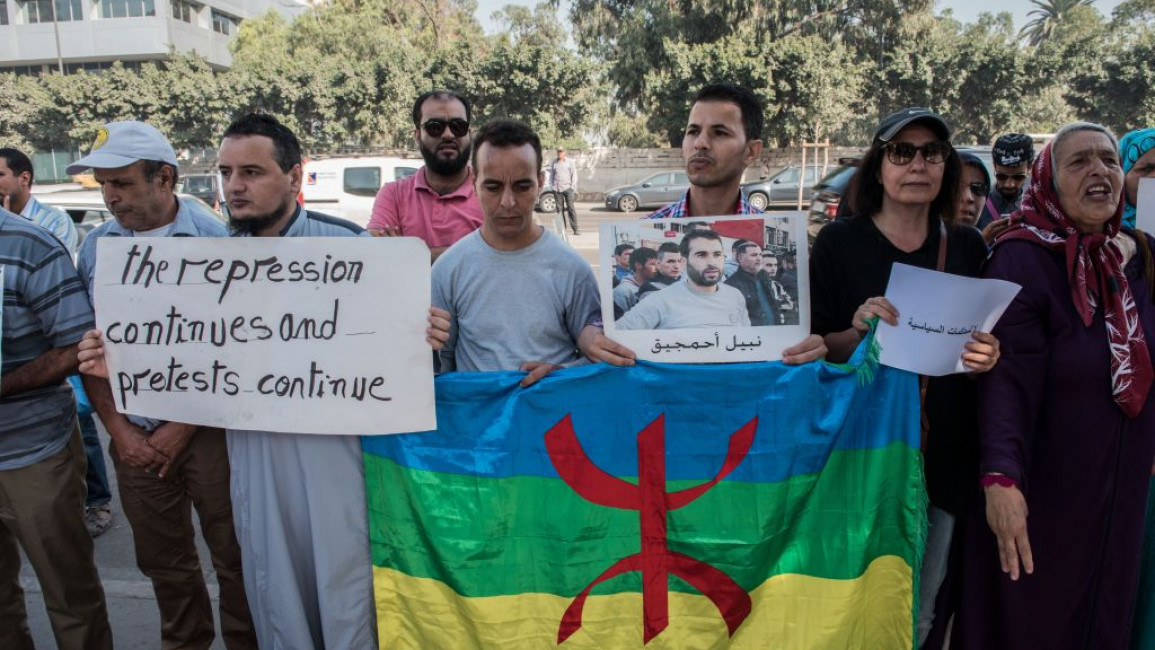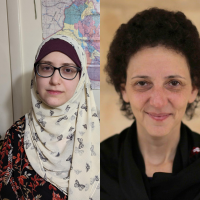
The struggle for Riffians is not over: Part 2
“In the Rif, we are genetically rebels,” joked Ahmed Zefzafi, the father of imprisoned Riffian activist Nasser Zefzafi, when asked about whether the revolutionary past of Mohamed Ben Abdelkrim Al-Khattabi, who defeated the Spanish protectorate in the Moroccan Rif had inspired his son and the other imprisoned leaders to take to the streets in 2016 and 2017.
Certainly, resistance has been a long-standing feature of the Rif’s history as various empires attempted to occupy the territory. But, when the Hirak uprisings started, the spirit of Abdelkrim was strongly felt amongst the people and energy once more.
As renowned Riffian historian Omar Lemallam explained: “During the six months of the Hirak movement, we could feel that activists and leaders of the movement were drawing inspiration from the past. In the chants, you could see the presence of Abdelkrim. He was there during the six months.”
“Through remembering history, people understood many things” he added. And, indeed, they did.
''Indeed the line amongst government officials echoes the sentiment of ongoing development. However, 101 years after the event that put the Rif on the world map as a leading example of anti-colonial struggle and popular resistance; most Riffians are critical of any claims made by the state. The repression that followed Abdelkrim’s legacy has marked them.''
An ongoing struggle
There are many similarities between the reason that people in the Rif famously revolted in 2017, and the motivations that drove Abdelkrim over a century ago:
Nevertheless, there is more to what the local people see to be the outcome of their struggle, despite some of the popular narratives against them.
“The Republic of the Rif was not created because Riffians wanted to build a modern independent nation for themselves, but it was actually created as a way to escape colonialism and to make sure that the Rif‘s needs were met… [it] was more of a survival mechanism,” explained Massinissa Akandouch, a Riffian activist. “What most people only want is their region to thrive, under a Morocco that will take care of its people,” he affirmed.
Whilst Morocco is among the most developed countries in Africa, with
Those she is referring to, who left, are the thousands of Riffians who make up large diasporas in Spain, the Netherlands, Germany and Belgium. In Catalonia, for example, Tamazight
After the Spanish left, the Moroccan government intentionally “destroyed everything” Ahmed Zefzafi recalls. “There were three salt plants, mines, industries…” he added. All of these opportunities for employment disappeared, leaving a crisis of unemployment that has severely impacted the population. Zefzafi’s son joined the Hirak protests because of the lack of jobs, as did so many others.
State neglect
The Moroccan
This has created an environment of such despair, with so many tired of their reality that thousands took to the streets over the course of six consecutive months. “It was out of a feeling of abandonment, a profound frustration inside of us,” said Akandouch, who feared for his parents’ lives as they took part in the strike.
State neglect left the people feeling worthless. Akandouch explains that it manifests in multiple layers; from the underfunding of schools and basic infrastructure, to the lack of Tamazight in administration –
The question of language has severe consequences, especially for the elderly in the region. Akandouch says that, “simple things like approaching a police officer or a doctor in a hospital and not being able to be assisted in Tamazight, but only in Arabic, are a problem.”
But some are optimistic, like Lalla Fadila Al-Khattabi who says she has faith that the region will develop, and points to the fact that a university is being built in the surroundings of Al-Hoceima, and a large hospital will soon open its doors.
Indeed the line amongst government officials echoes the sentiment of ongoing development. However, 101 years after the event that put the Rif on the world map as a leading example of anti-colonial struggle and popular resistance; most Riffians are critical of any claims made by the state. The repression that followed Abdelkrim’s legacy has marked them.
Ultimately, as Riffians have made clear time and again, the mission is neither to divide nor to depart; but to rebuild a Rif where they can live in dignity, and where their culture and history involve feeling pride, not fear.
Bianca Carrera is a freelance writer and analyst specialising in Middle Eastern and North African politics, as well as environmental matters, at Sciences Po Paris. She has written for Al Jazeera, Oxfam, elDiario.es, and others.
Join the conversation: @The_NewArab
Have questions or comments? Email us at: editorial-english@newarab.com
Opinions expressed in this article remain those of the author and do not necessarily represent those of The New Arab, its editorial board or staff.




